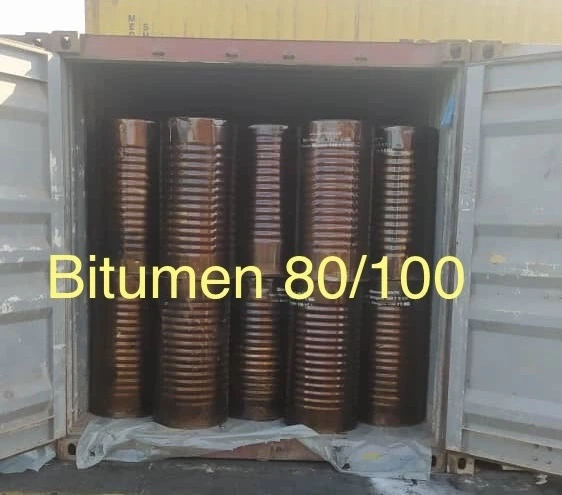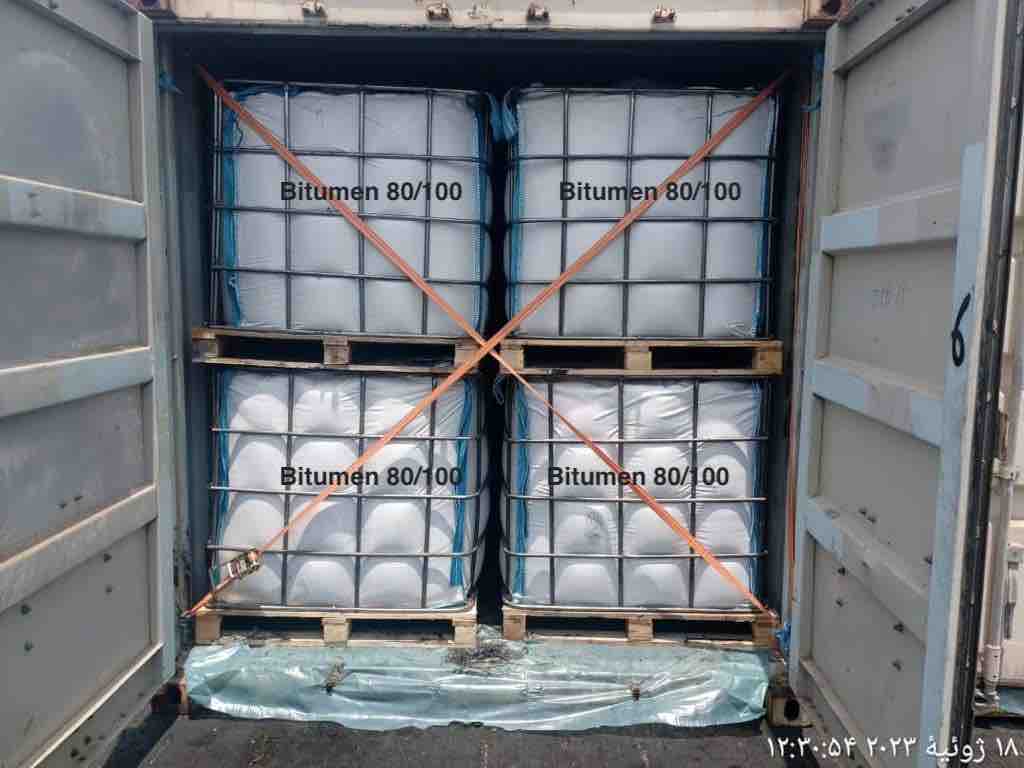
Bitumen Grade 80/100
Bitumen 80/100 is a dark brown to black material primarily obtained from the distillation of crude oil. This soft penetration grade of bitumen is extensively used as a binder for mineral aggregates in road pavements and called asphalt 80/100 as well. Additionally, it serves as a waterproofing material, a joint sealant, and is used in roofing applications. The main application of this grade of bitumen is in the production of hot mix asphalt for base and wearing courses.
Key Features of Bitumen 80/100
It is highly adhesive and resistant to damage from water and oil spills, making it an ideal binder for asphalt. So far is widely used on surfaces such as roads, car parks, and driveways due to its durability and resistance to environmental stressors.
Manufacturing Process

The production of Bitumen 80/100 involves refining crude oil through a distillation process. The crude oil is heated, and the lighter fractions are separated, leaving behind a residue that is further processed to achieve the desired penetration grade. The bitumen undergoes rigorous testing to ensure it meets the required specifications for penetration, softening point, viscosity, and other properties.
Softening Point and Penetration
Penetration bitumen grade 80/100 provided by ATDM is pure petroleum bitumen, produced from vacuum bottom by passing hot air. This bitumen is manufactured from the residue of crude oil after cracking and removing hydrocarbons. The bitumen has a penetration range between 80 to 100 desi-millimeters and a softening point between 42 to 50°C. Its thermoplastic properties make it similar to synthetic resin materials, softening when heated and hardening when cooled. Bitumen 80/100 exhibits very strong viscosity compared to other grades.
Quality Guarantee and Warranty
ATDM guarantees the quality by arranging international inspectors to check the quality and quantity during loading to the vessel. Quality control is ensured through batch test reports before shipping, meeting ASTM/EN 12591 standards.
Data Sheet and Analysis of Bitumen 80/100 Specification
| Property | Typical Value | Test Method |
|---|---|---|
| Penetration @ 25°C (0.1 mm) | 80–100 | ASTM D5 / EN 1426 |
| Softening Point (R&B), °C | 42–50 | ASTM D36 / EN 1427 |
| Ductility @ 25°C | ≥100 cm | ASTM D113 |
| Flash Point, °C | ≥250 | ASTM D92 |
| Solubility in CS₂ | ≥99.5 % | ASTM D4 |
| Loss on Heating, % | ≤0.2 % | ASTM D6 |
| Drop in Penetration after Heating | ≤20 % | ASTM D5–D6 |
| Specific Gravity @ 25°C | 1.01–1.06 g/cm³ | ASTM D70 |
| Spot Test | Negative | AASHTO T102 |
MSDS of Bitumen 80/100
Differences Between 80/100 and 60/70
The primary differences between 80/100 and 60/70 lie in their penetration values, softening points, viscosity, and application suitability. These factors determine their performance in different environmental conditions and traffic scenarios.
Penetration Grade Explained
Penetration grade measures the depth a standard needle penetrates the bitumen sample under specific conditions of temperature, load, and time. This measurement helps classify bitumen into various grades. 80/100 has a penetration value between 80 and 100, indicating it is softer, while Bitumen 60/70 has a value between 60 and 70, showing it is harder.
Softening Point
The softening point of bitumen is the temperature at which it becomes soft enough to flow. Bitumen 80/100 has a lower softening point compared to Bitumen 60/70. This characteristic means 80/100 will become pliable at lower temperatures, making it more suitable for cooler climates, whereas Bitumen 60/70, with its higher softening point, is better for hotter regions.
80/100 grade percentage
Generally 80/100 means 80 to 100 not 80 from 100!Most of people make mistake on the grade and thinking it is percentage in bitumen while it is wrong and showing penetration number only.
FAQs
Q1: What does the 80/100 penetration range indicate?
It shows the consistency of the bitumen—how deep a standard needle penetrates under specific conditions. The range ensures the material is suitable for flexible paving and waterproofing.
Q2: Is Bitumen 80/100 suitable for high-traffic roads?
Yes, it performs well on medium to high-traffic roads, offering good load resistance and durability.
Q3: What climate is this grade ideal for?
It suits moderate to cool climates and can adapt well in regions with seasonal temperature changes.
Q4: Can ATDM provide third-party inspection?
Absolutely. ATDM arranges third-party QC inspections upon request and provides batch test reports.
Q5: What is the shelf life of packaged Bitumen 80/100?
When stored properly, it maintains quality for up to 12 months in sealed containers away from direct sunlight.

